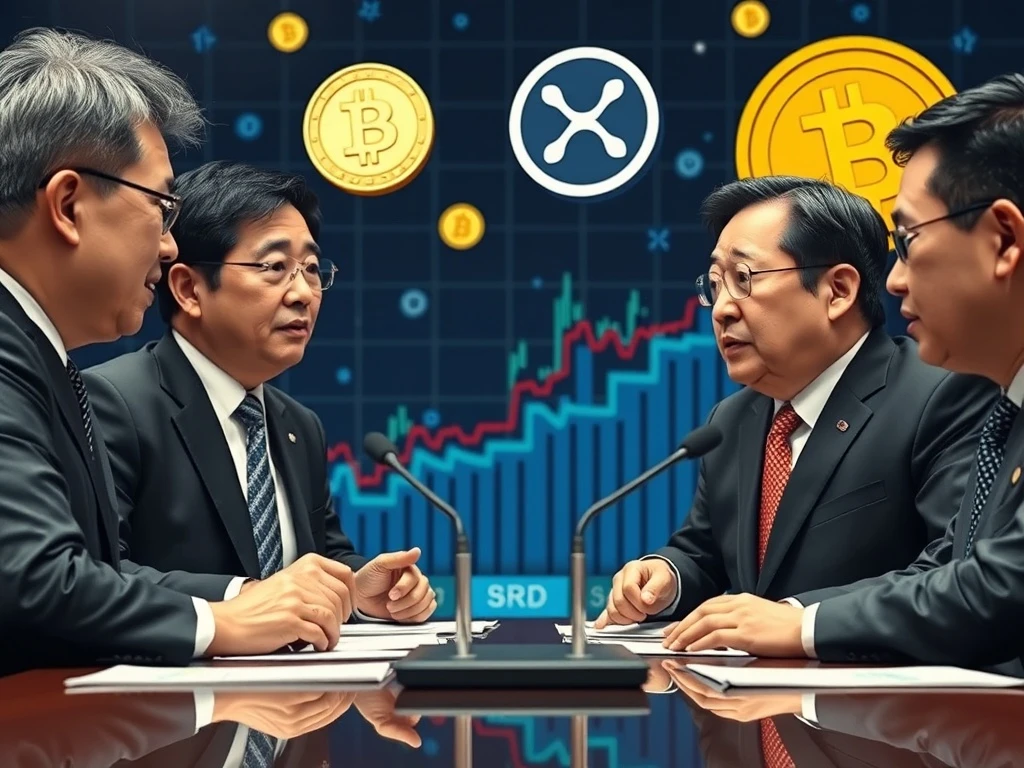South Korean lawmakers are making substantial personal investments in XRP and other cryptocurrencies while simultaneously crafting legislation that governs these digital assets, creating a potential conflict of interest that demands immediate attention from regulatory bodies and investors alike.
Massive Retail Investment in US Crypto Stocks
South Korean retail investors have poured over $12 billion into US cryptocurrency-related stocks this year. This remarkable trend demonstrates growing confidence in digital assets despite market volatility. Additionally, August saw significant investments in major crypto companies:
- $426 million in Bitmine shares
- $226 million in Circle Internet Group
- $183 million in Coinbase stock
Analysts attribute this sustained interest to favorable regulatory developments in both US and South Korean stablecoin legislation.
Lawmakers’ Personal Crypto Holdings Raise Concerns
Sixteen members of South Korea’s Culture Committee hold substantial cryptocurrency assets, including XRP and PEPE. Consequently, this situation creates potential conflicts as these lawmakers shape policies affecting their personal investments. For instance, opposition party member Jin Jong-oh reported a 440% portfolio growth through crypto investments.
Bipartisan Crypto Investment Strategy
Lawmakers from both major parties participate in cryptocurrency investments. Democratic Party members, including Yang Moon-seok, disclosed significant XRP holdings. This bipartisan approach reflects a strategic shift toward digital finance recognition. Moreover, investments extend beyond cryptocurrencies to include:
- US technology giants like Microsoft and Apple
- Unlisted South Korean gaming companies
- Various overseas tech stocks
KOSPI 5000 Era and Crypto Integration
South Korea’s economic vision promotes crypto deregulation and stablecoin adoption. However, lawmakers avoid domestic equity markets while supporting digital asset integration. This paradox highlights the complex relationship between personal investment strategies and public policy development.
Governance and Transparency Challenges
The growing crypto investments demand stronger governance safeguards. Policy decisions must remain impartial despite personal financial interests. Furthermore, transparent reporting mechanisms become essential for maintaining public trust in legislative processes.
Market Implications and Future Outlook
Stablecoin adoption continues rising alongside legislative support. Both retail and institutional investors may increase market participation. However, ethical considerations must guide future policy developments to ensure fair market conditions.
Frequently Asked Questions
How much have South Korean investors put into US crypto stocks?
South Korean retail investors have invested over $12 billion in US cryptocurrency-related stocks this year.
Which lawmakers hold cryptocurrency assets?
Sixteen members of South Korea’s Culture Committee hold significant crypto assets including XRP and PEPE.
What is the KOSPI 5000 era?
It’s South Korea’s economic vision that promotes crypto deregulation and stablecoin adoption as part of financial strategy.
Are crypto investments bipartisan among lawmakers?
Yes, lawmakers from both major political parties have disclosed cryptocurrency investments and holdings.
What concerns do these investments raise?
They create potential conflicts of interest as lawmakers shape policies affecting their personal investments.
How are regulators addressing these concerns?
There are growing calls for transparent governance and conflict-of-interest safeguards in policy-making processes.








